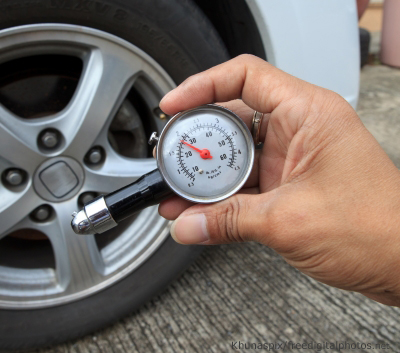Are you planning a long trip or a move? Keep your family safe when spending hours on the road with proper preparation and awareness.

Plan your Trip in Advance
Avoid getting lost, dangerous neighborhoods or treacherous road conditions by planning your route before you leave. Become familiar with the roads and the area you will pass through to map out the best route to your destination. Use mapping websites such as Mapquest or Google Maps to determine your route before you get behind the wheel.
Prepare your Vehicle
Staying safe on the road requires a safe vehicle for traveling.
- Coolant system. Have your coolant system checked by a mechanic to ensure everything is working properly and replace any malfunctioning or old parts.
- Tires. Check the treads on your tires to make sure you have sufficient traction and make sure they have enough air (having a spare tire in your trunk is also a good idea).
- Fluid levels. Check all of your vehicle’s fluids-- your transmission fluid, brake fluid, power-steering fluid and windshield washing fluid to ensure everything is at the necessary levels.
- Brakes. Check your brakes and rotors (or have it done by a professional) and make any necessary repairs.
- Wipers. Keeping your view clean and clear improves your visibility and keeps you safe on the road. Make sure your wipers are properly functioning and replace old blades if necessary.
Pack Properly
If you are moving--or even just taking an extended vacation--you may be loading your car with heavy luggage and boxes. However, overloading your car with too much weight can damage your tires and make your vehicle difficult to handle. Your tires should indicate how much weight they can safely sustain on the sidewall--for example, "Max. Load 1500 lbs. @ 32 psi (pounds per square inch) Max. Pressure." This means with four tires, the weight of your vehicle, passengers, and cargo should not exceed 6,000 pounds. Also, make sure nothing is obstructing your view when packing your car. You should be able to see clearly out of every window in your vehicle.
Bring Emergency Supplies
In case of trouble on the road, you should be equipped with proper supplies.
- A first-aid kit in case of injuries, and all of your necessary medicine
- A snow scraper for winter car trips
- Road flares or reflective warning triangles
- Tire gauge to check air pressure (don't forget to check your spare's pressure before hitting the road)
- Jumper cables
- Tow rope/strap
- Flashlight and batteries
- Water and nonperishable snacks
- A blanket
- A shovel
- Gloves and rags
- Duct tape
- Rain poncho
- Multi-purpose utility tool (such as a Swiss Army Knife)
Avoid Stress
Accidents often happen when you are distracted. The last-minute planning when taking a trip or moving causes many harried drivers to rush out the door and get behind the wheel in a frantic state of mind. Before getting on the road, make sure you are calm and capable of focusing completely on your drive. Avoid trip-induced stress by planning the details in advance and making sure you are completely packed ahead of time.
Take Breaks
Long hours behind the wheel can cause drowsiness, physical pain, and discomfort. Stay sharp and focused by taking frequent breaks to sleep, stretch your muscles and break the monotony of a long drive. If you have other passengers, share the driving duties. Tired driving is considered just as dangerous as drunk driving, so be sure to get a good night's rest before beginning any long car trip. If you ever feel yourself growing drowsy behind the wheel, yawning, daydreaming, or drifting out of your lane, it's time to pull over and get some shut-eye.
Be aware of your Surroundings
When stopping at gas stations or rest areas, it's imperative to be cautious when you exit your vehicle--especially at night. Avoid mostly deserted rest stops, and get your fuel and food in well-lit, well-populated businesses. Always have your keys in your hand in case you need to get back into your vehicle quickly and always lock your doors as soon as you get inside. Be sure to always keep your vehicle locked whenever you leave it, as well.
What to do if you Break down
If you do encounter mechanical trouble on the road, make sure to be cautious when pulling over on the shoulder. It's always best to try and drive to the nearest service station if possible, but if not, pull onto the side of the road to call for help.
- Keep your wheels pointed in so your car will not roll back into traffic.
- Get out of your car and remain away from traffic. Never stand on the side of your vehicle that's next to the road.
- Turn on your hazards and/or use road flares or reflective triangles to make your vehicle visible to other drivers.
- Call your roadside assistance number or the police. Do not attempt to make repairs to your own vehicle on a busy, high-traffic road.